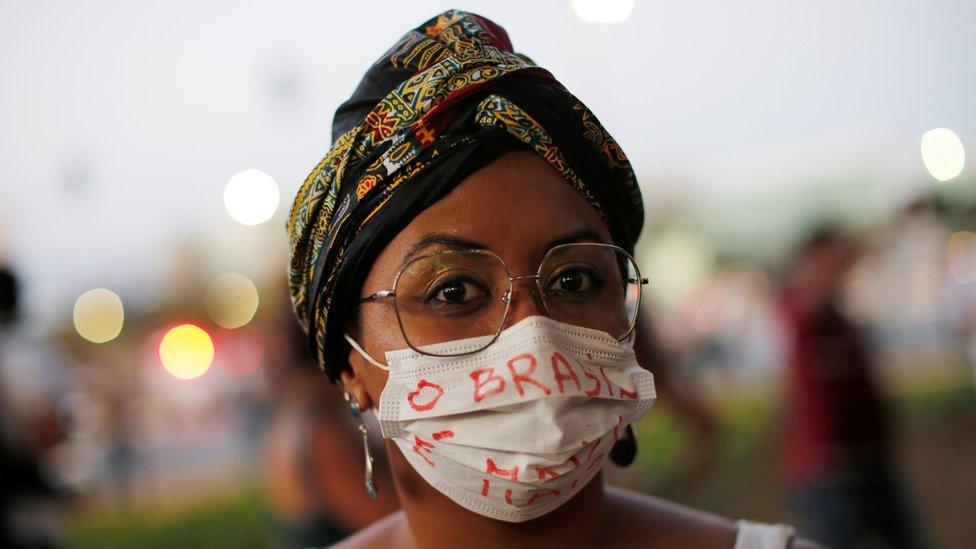Amazon fires: What about Bolivia?
- Published
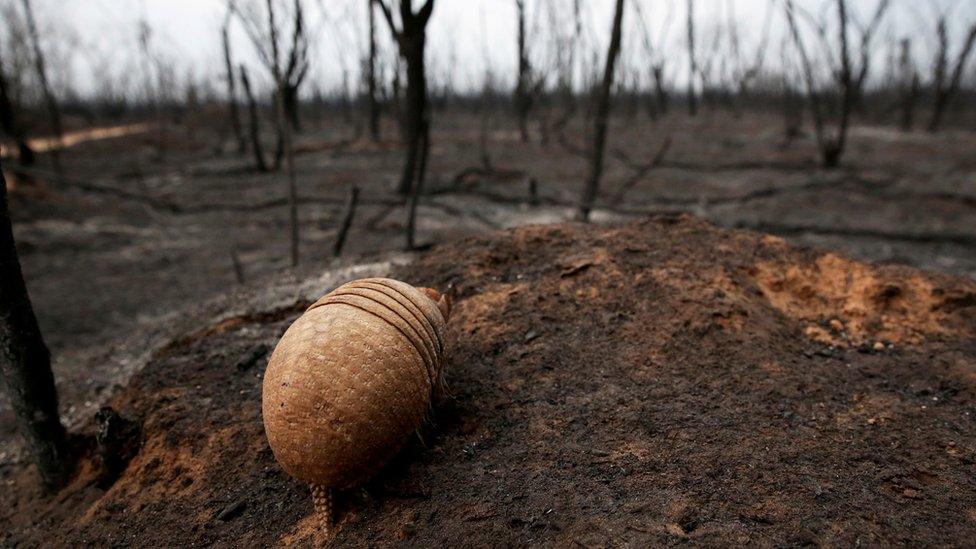
This armadillo was blinded by fires, its vet said, as the conservation area it lived in burned
All eyes have been on the burning of the Amazon rainforest in Brazil, as international pressure - and sharp criticism - have been heaped upon its president.
But fires do not stop at borders, and Bolivia's forest is burning too.
The Amazon sprawls for millions of square miles across nine different countries - and Bolivia has seen fires rage across the forest near its borders with Brazil and Paraguay.
Drone footage shows some of the damage done to Bolivia's Amazon
The size of the fires is estimated to have doubled since Thursday. About one million hectares - or more than 3,800 square miles- are affected.
Yet while Brazil's President Bolsonaro has been trading rhetorical blows with world leaders over his actions to protect the rainforest, little attention has been given to the blaze in Bolivia and its causes.
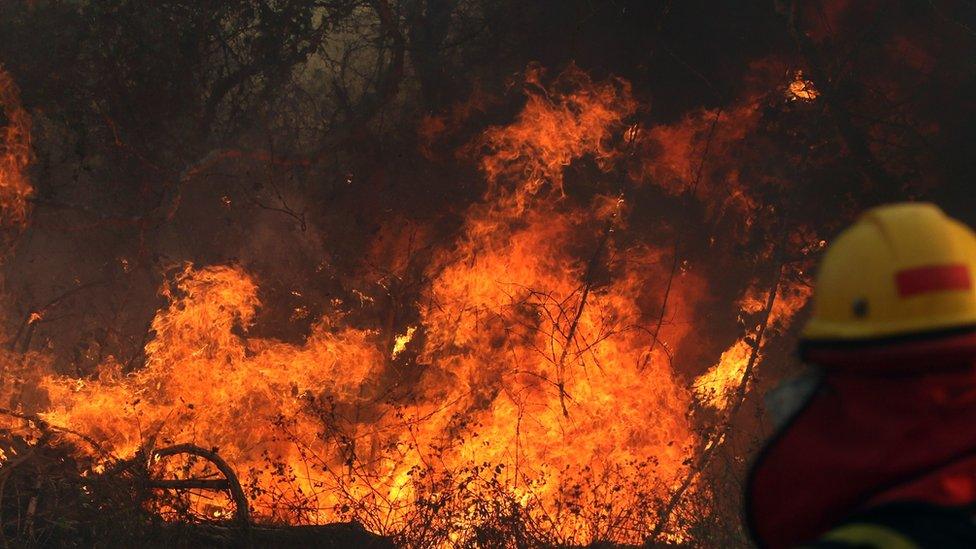
A firefighter tackles the blaze in Roboré, near Santa Cruz
Bolivian President Evo Morales is in the midst of a controversial re-election campaign, having gone to the courts to abolish term limits as he seeks a fourth time as the country's leader.
Unlike his Brazilian counterpart, he has decided to accept international help in fighting the fires - securing a Boeing 747 "supertanker" from the US to drop water, and welcoming the offer of aid from the G7 summit at the weekend.
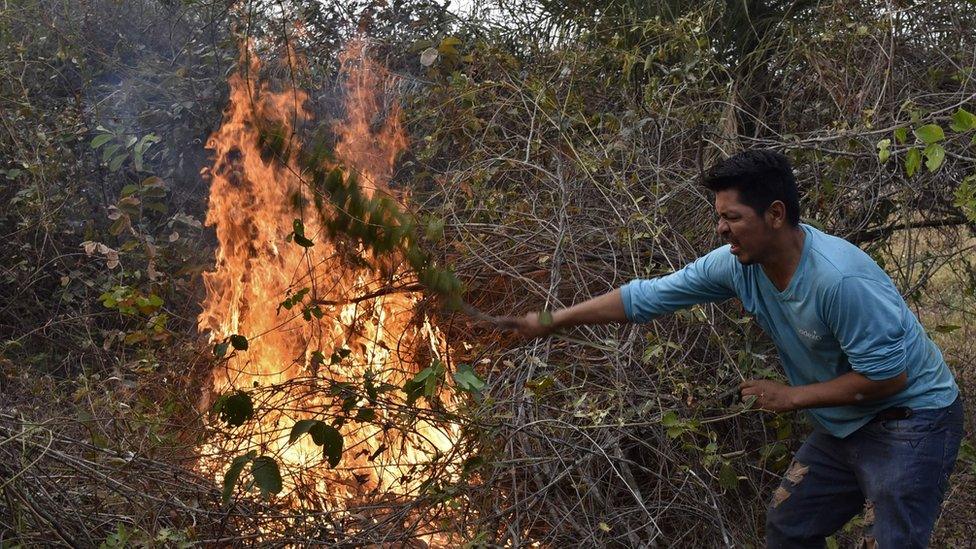
A volunteer attempts to put out a fire in eastern Bolivia on Sunday
Tweeting messages of solidarity and unity, Mr Morales said nothing was more important than Mother Earth - "she can live without us, but we can't live without her", and has suspended his election campaign for a week.
But critics say this focus on environmentalism is a sudden U-turn, at odds with his record.
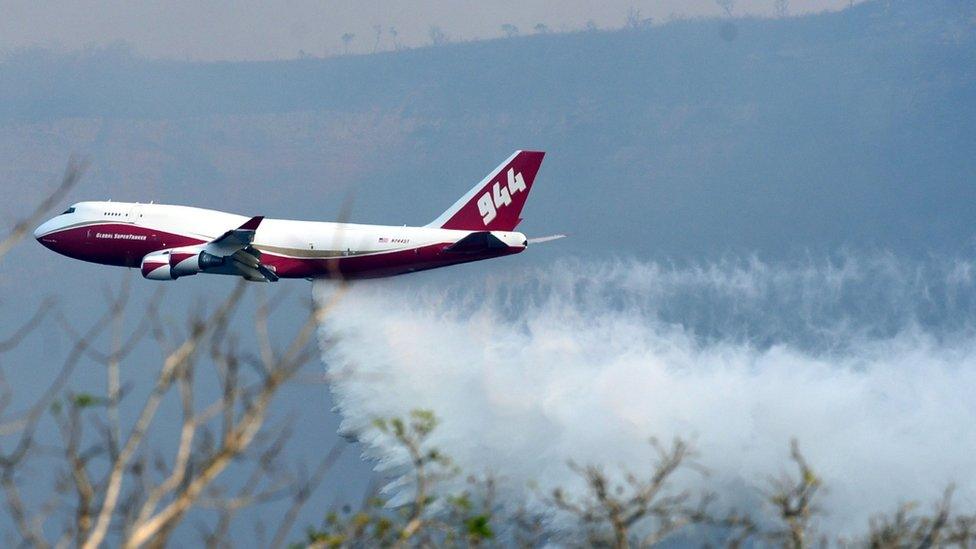
A supertanker dumps water over Roboré on Friday
Under Mr Morales, polices have been changed to allow farmers to clear more land than before by controlled burns - quadrupling the allowance from five to 20 hectares. The decree was only issued last month.
Jhanisse Daza, an environmental activist who lives near the area, said she believes the fires may be deliberate policy.
"You have to understand that the use of controlled fires in August when we are going through a dry season is not only negligence," she said. "I believe they knew what they were doing."
"So there's a policy by the Morales government – although it shows itself internationally as being incredibly environmental and supportive of environmental rights but their policy has been going the complete opposite direction."
Similar accusations are levelled in Brazil, where most of the fires are believed to have been set deliberately by farmers and other small groups who believe they will not face consequences under Bolsonaro's government.
Why the Amazon rainforest helps fight climate change
Aside from Mr Morales' pro-agriculture razing policy, his government has also been accused of being slow to react when the fires first broke out, and said it would fight the fires itself without the need for foreign aid.
Predictably, Evo Morales' rival for the presidency, Carlos Mesa, said the president's efforts had come too late.
"The government reacted late and poorly, it took them almost two weeks and they were without a strategic plan. Evo Morales has put his campaign first rather than governing Bolivia," he said.
The refusal to accept foreign aid has now been reversed. Reuters news agency reported that the about-face came after provincial officials and village leaders pleaded with the government to accept the aid.
Indigenous leaders have also voiced their criticism. Alex Villca, an indigenous leader in the Amazon region and spokesman for the indigenous rights group Contiocap said that the government was to blame for the fires.
"We need to hold Evo Morales to account for this situation. When is he going to account for all of this? He needs to be held accountable for all the times that the rights of the indigenous people have been violated, as well as those of mother nature," he said.
Progress is now being made, as some 2,000 firefighters and the military tackle the outbreaks - but much damage has already been done.
- Published24 August 2019
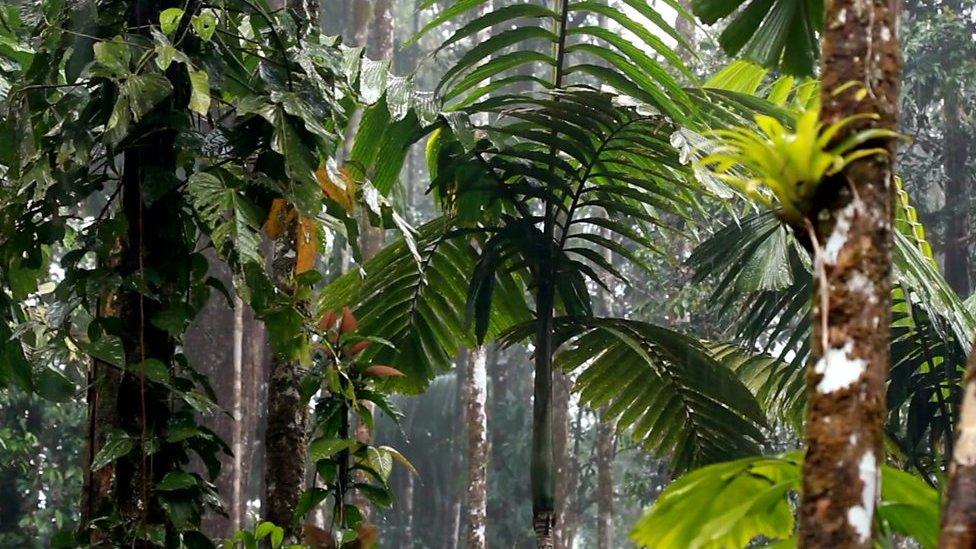
- Published26 August 2019
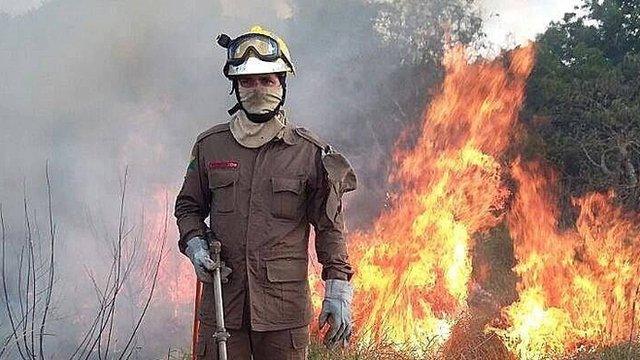
- Published26 August 2019
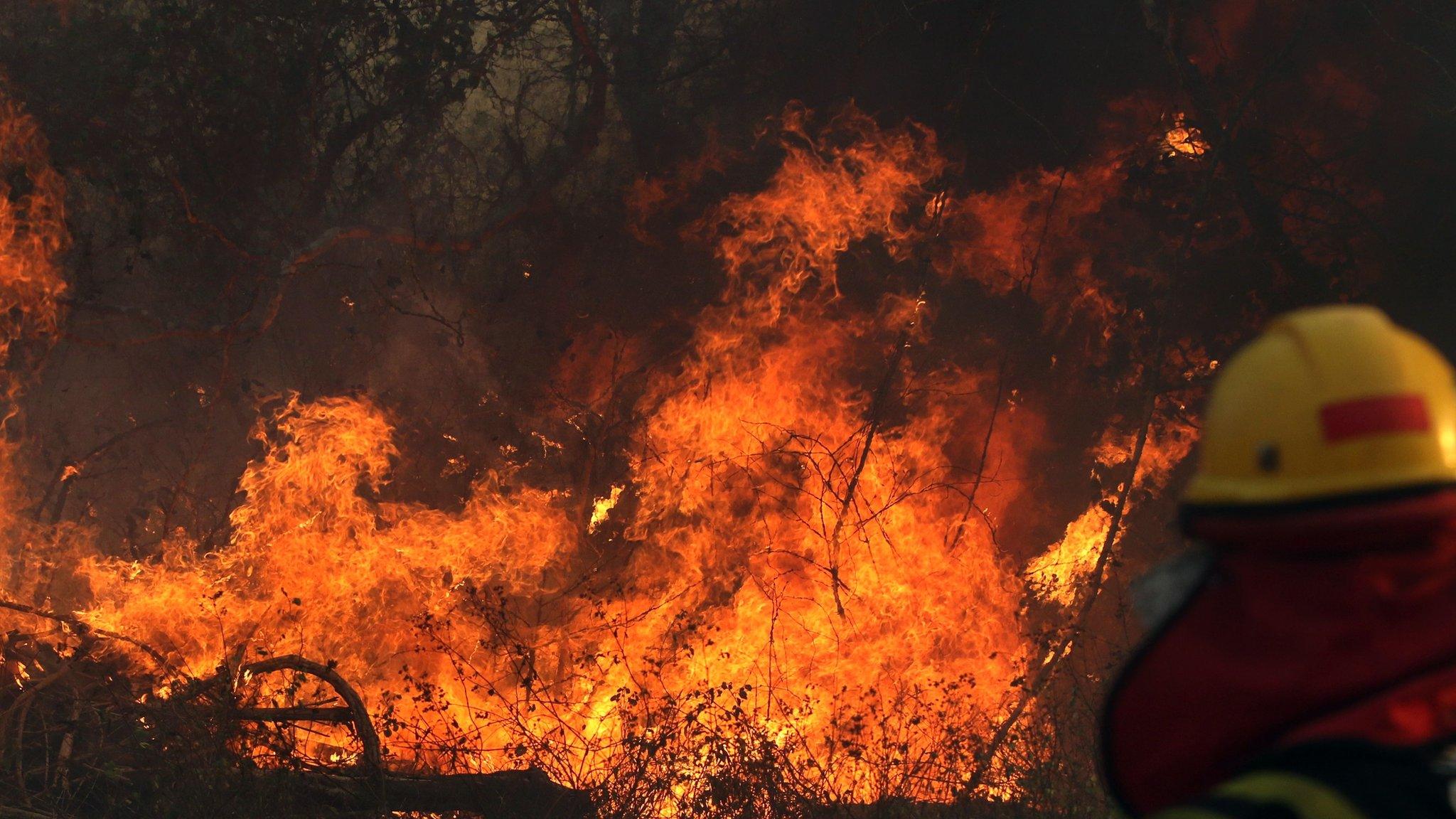
- Published28 August 2019
